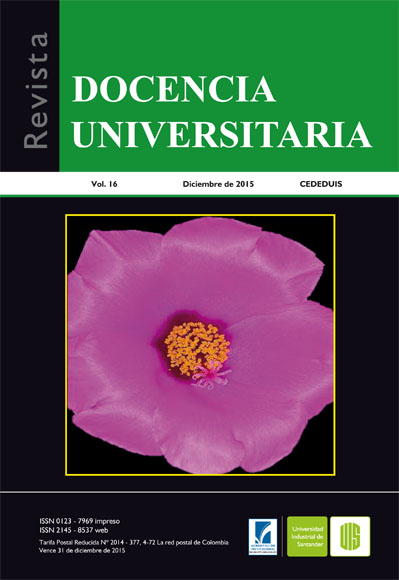What does it mean to be a teacher at the University level? An approach through statements of teaching philosophy
Published 2015-12-08
How to Cite
Abstract
In this article we report the results of our research on the meaning of being a university teacher, which was developed through the content analysis of 73 texts produced by the participants of a teacher development program in a Chilean university. These texts correspond to what has been called a statement of teaching philosophy, i.e., a reflective text that intends to establish the teacher identity and the teaching practice of its author. Texts were anonymised and codified according to usual content analysis techniques. The categories produced from the material were: a) reasons for becoming a university teacher, b) relevant characteristics of a university teacher c) the role of the university teacher, d) the theoretical framework of the teaching practice, and e) the methodology of the teaching practice. Finally, we discuss our results underlining the implications for accompanying the training and the professional development of university teachers.
Keywords: university teaching, statements of teaching philosophy, content analysis, university teachers, teacher training.
Downloads
References
- Bardin, L. (2013). L’analyse de contenu. Paris: PUF.
- Boye, A. (2012). Writing your Teaching Philosophy. El Paso: Teaching, Learning and Professional Development Center, Texas Tech University.
- Brookfield, S. (1995). Becoming a Critically Reflective Teacher. San Francisco: Jossey-Bass.
- Coppola, B. (2002). Writing a statement of teaching philosophy. Journal of College Science Teaching, 31(7), 448-453.
- Gargallo, B.; Fernández, A. y Jiménez, M.A. (2007). Modelos docentes de los profesores universitarios. Teoría de la Educación, 19, 167-189.
- González-Monteagudo, J. (1996). El enfoque biográfico en las investigaciones sobre los profesores. Una revisión de las líneas de trabajo más relevantes. Aula Abierta, Universidad de Oviedo, 68, 63-85.
- Goodyear, G. E. y Allchin, D. (1998). Statements of teaching philosophy. En: M. Kaplan (ed.). To Improve the Academy, 17, 103-122. Stillwater, OK: New Forums Press and the Professional and Organizational Development Network in Higher Education.
- Kearns, K.D.; Subiño-Sullivan, C.; O’Loughlin, V.D. y Braun, M (2010). A scoring rubric for teaching statements: A tool for inquiring into graduate student writing about teaching and learning. Journal on Excellence in College Teaching, 21(1).
- Mayring, P. (2014). Qualitative Content Analysis. Theoretical Foundation, Basic Procedures and Software Solution. Klagenfurt. [En línea] Disponible en: http://nbn-resolving.de/urn:nbn:de:0168- ssoar-395173. Consultado el 10 de junio de 2016.
- Mezirow, J. (1991). Transformative Dimensions of Adult Learning. San Francisco: Jossey-Bass.
- O’Neal, C.; Meizlish, D. y Kaplan, M. (2007). Writing a Statement of Teaching Philosophy for the Academic Job Search. Ann Arbor: University of Michigan.
- Russell, T. (2014). La práctica en la formación de profesores: tensiones y posibilidades en la experiencia de aprender a enseñar. Estudios Pedagógicos, 40, 223-238.
- Schönwetter, D.J.; Sokal, L., Friesen, M. y Taylor, K. L. (2002). Teaching philosophies reconsidered: A conceptual model for the development and evaluation of teaching philosophy statements. International Journal for Academic Development, 7(1), 83-97.
- Serrano, R. (2010). Pensamientos del profesor: un acercamiento a las creencias y concepciones sobre el proceso de enseñanzaaprendizaje en Educación Superior. Revista de Educación,252, 267-287.

